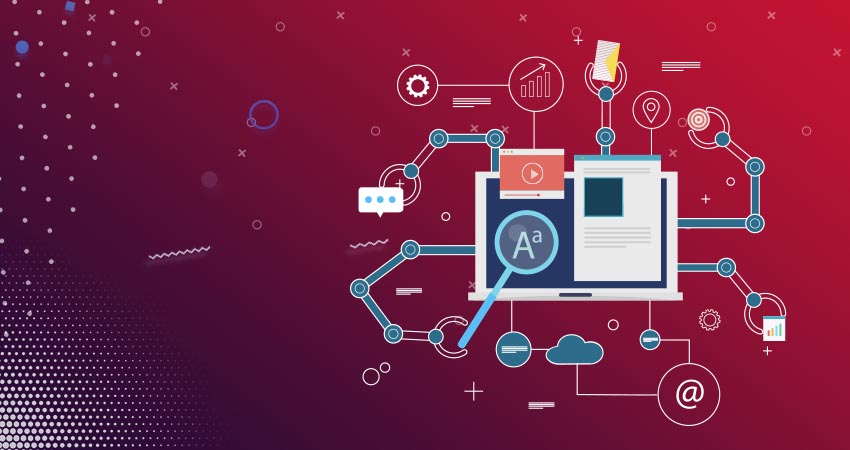What is difference BTN Data Science / Data Analytics
Posted By:ExcelPTP
July 07,2021
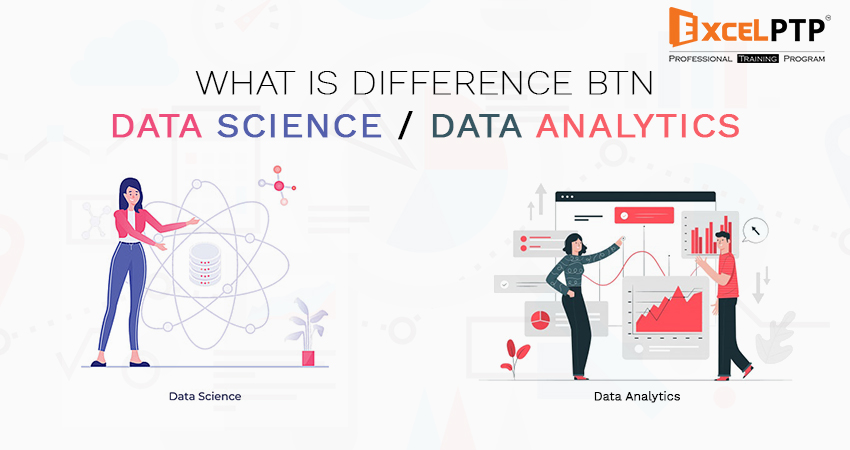
The upsurge of massive Data has brought along two other buzzwords within the industry, Data Science and Data Analytics. Today, the entire world contributes to gargantuan data growth in colossal volumes, hence the name, Big Data. The World Economic Forum states that by the end of 20201, the day-to-day global data generation will reach 44 zettabytes. By 2025, this number will reach 463 exabytes of data!!
Big Data comprises everything – texts, emails, tweets, user searches (on search engines), social media chatter, data developed from IoT and connected devices – essentially , everything we do online. The info generated a day via the digital world is so vast and sophisticated that traditional processing and analysis systems cannot handle it.
Since Big Data, Data Science, and Data Analytics are emerging technologies (they’re still evolving), we frequently use Data Science and Data Analytics interchangeably. The confusion basically emanates from the very fact that both Data Scientists and Data Analysts work with Big Data. Even so, the discrepancy between Data Analyst and Data Scientist is blunt, fueling the data Science vs. Data Analytics debate.
In this article, we’ll address the info Science vs. Data Analytics debate, that specializes in the difference between the info Analyst and Data Scientist.
Data Science vs. Data Analytics: Two faces of the same coin
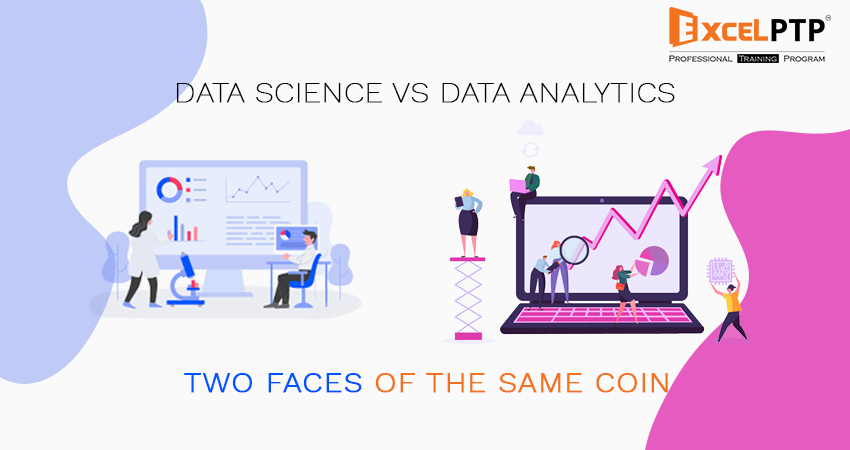
Data Science and Data Analytics affect Big Data, each taking a singular approach. Data Science is an umbrella that encircles Data Analytics. Data Science may be a combination of multiple disciplines – Mathematics, Statistics, computing , informatics , Machine Learning, and AI.
It includes concepts like data processing , data inference, predictive modeling, and ML algorithm development, to extract patterns from complex datasets and transform them into actionable business strategies. On the opposite hand, data analytics is especially concerned with Statistics, Mathematics, and Statistical Analysis.
While Data Science concentrates on finding relevant correlations between large datasets, Data Analytics is meant to discover the specifics of extracted insights. In other words, Data Analytics is a branch of Data Science that concentrates on more definite answers to the questions that Data Science brings forth.
Data Science seeks to get new and unique questions which will drive business innovation. In contrast, Data Analysis aims to seek out solutions to those questions and determine how they will be implemented within a corporation to foster data-driven innovation.
Data Science vs. Data Analytics: Job roles of Data Scientist and Data Analyst
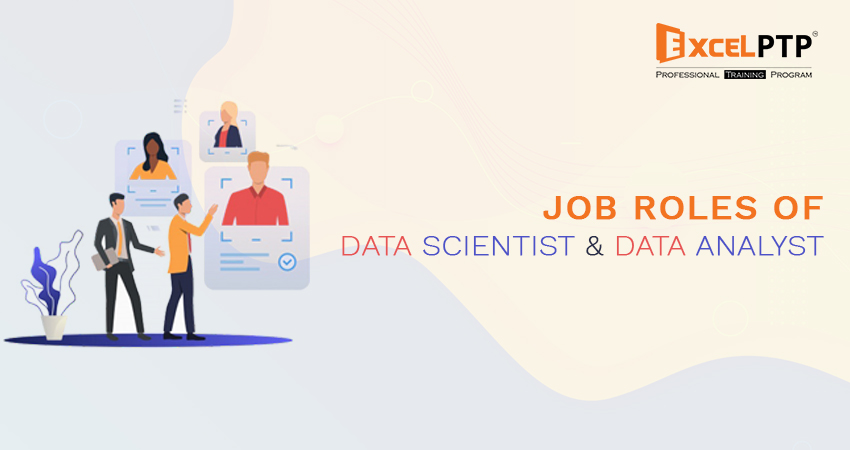
Data Scientists and Data Analysts utilize data in several ways. Data Scientists use a combination of Mathematical, Statistical, and Machine Learning techniques to wash , process, and interpret data to extract insights from it. They design leading data modeling processes using prototypes, ML algorithms, predictive models, and custom analysis.
While data analysts examine data sets to spot trends and draw conclusions, Data Analysts collect large volumes of knowledge , organize it, and analyze it to spot relevant patterns. After the analysis part is done, they aim to present their findings through data visualization design like charts, graphs, etc. Thus, Data Analysts transform the complicated insights into business-savvy language that both technical and non-technical members of a corporation can understand.
- To process, clean, and validate the integrity of knowledge.
- To do Exploratory Data Analysis on huge datasets.
- To perform data processing by creating ETL pipelines.
- To write code for automation and create resourceful ML libraries.
- To glean business insights with the support of ML tools and algorithms.
- To identify new trends in data for creating business predictions.
Role of Data Scientists
- To gather and interpret data.
- To identify proper patterns in a dataset.
- To do data querying using SQL.
- To experiment with various analytical tools such as predictive analytics, prescriptive analytics, descriptive analytics, and diagnostic analytics.
- To use data visualization tools such as Tableau, IBM Cognos Analytics, etc., for presenting the extracted information.
Role of Data Analysts
Data Science vs. Data Analytics: Core Skills
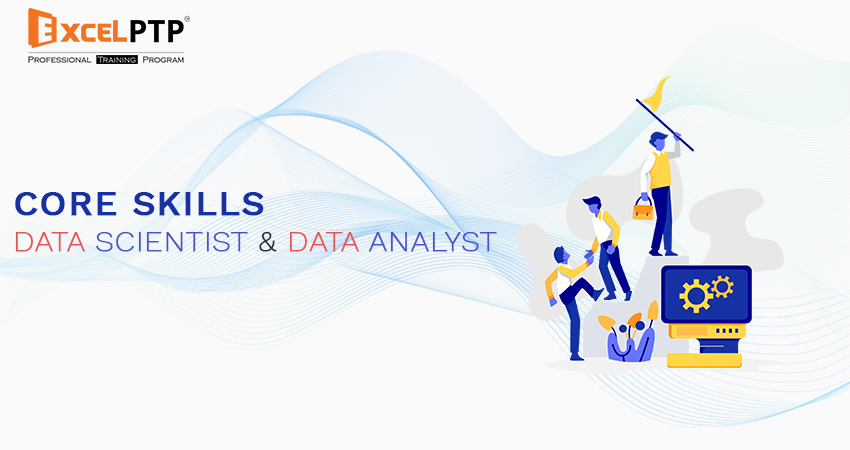
Data Scientists must be adept in Mathematics and statistics and expertise in programming (Python, R, SQL), Predictive Modelling, and Machine Learning. Data Analysts must be skilled in data processing , data modeling, data warehousing, data analysis, statistical analysis, and management & visualization. Both of them must be excellent problem solvers and expert thinkers.
- Well-versed in Excel and SQL databases.
- Proficient in using tools such asSAS, Tableau, Power BI, to name a few.
- Adept in R or Python programming.
- Expert in data visualization.
A Data Analyst must be
- Well-versed in Probability & Statistics and Multivariate Calculus & Linear Algebra.
- Expert in programming in R, Python, Java, Scala, Julia, SQL, and MATLAB.
- Expert in database management, data wrangling, and Machine Learning.
- Expert using Big Data platforms such as Apache Spark, Hadoop, etc.
A Data Scientist must be
Data Science vs. Data Analytics: Career Perspective
The career pathway for Data Science and Data Analytics is sort of similar. Data Science aspirants must have a robust educational foundation in computing , or Software Engineering, or Data Science. Also, Data Analysts can go after an undergraduate degree in Computer Science, or Information Technology, or Mathematics, or Statistics.
Typically, Data scientists are far more technical, requiring a mathematical mindset, and Data Analysts combat a statistical and analytical approach. From a career point of view , the role of a Data Analyst is more of an entry-level position. Aspirants with an excellent background in statistics and programming can bag Data Analyst jobs in companies.
an Conclusion, To conclude, albeit Data Science and Data Analytics step on similar lines, here’s a good share of differences between Data Analyst and Data Scientist job roles. And the choice between these two largely depends on your enthusiasm and career goals… For more updates stay tuned with us!!
Apart from above many courses where you can make a bright career get more details by clicking on Available Course and get career related guidelines by visiting Excel PTP office near you.






